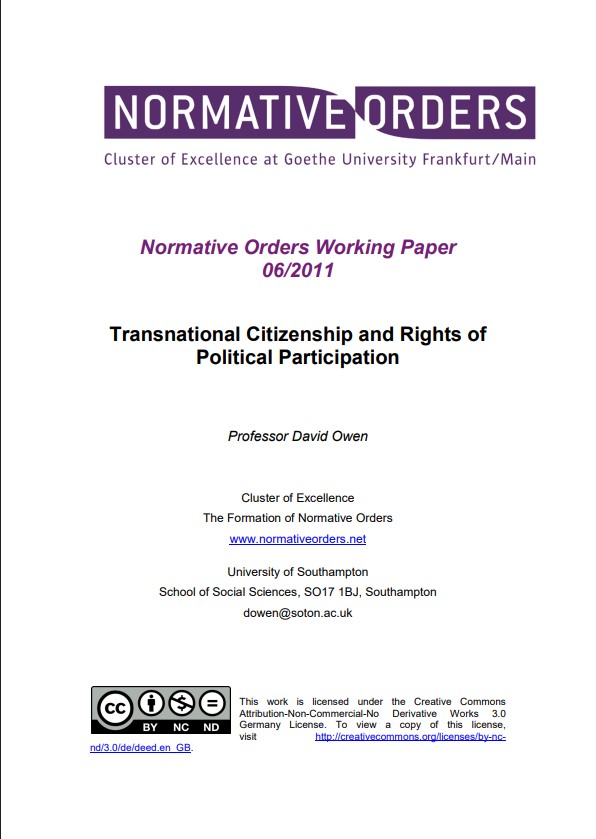Transnational Citizenship and Political Participation
This article addresses two central topics in normative debates on transnational citizenship: the inclusion of resident non-citizens and of non-resident citizens within the demos. Through a critical review of the social membership (Carens, Rubio-Marin) and stakeholder (Baubock) principles, it identifies two problems within these debates. The first is the antinomy of incorporation, namely, the point that there are compelling arguments both for the mandatory naturalization of permanent residents and for making naturalization a voluntary process. The second is the arbitrary demos problem and concerns who determines whether expatriate voting rights are granted (and on what terms). The argument developed provides a way of dissolving the first problem (and defending the proposed solution against possible objections) and resolving the second problem. In doing so it provides a defensible normative basis for the political theory of transnational citizenship.


